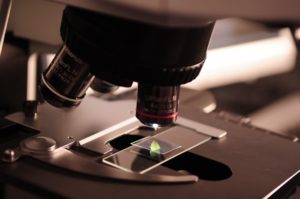How do our brains decide what to learn? As students, how can we force our brains to hold on to the facts from our classes that we need to remember for exams instead of random information from our favourite TV shows? Turns out, researchers at Harvard University were wondering that, too.
In order to learn, our brains—like the brains of other animals—need to connect cause and effect. For instance, if you eat something and it tastes good, your brain remembers that. Next time you’re hungry, you’ll pick that same thing that tastes good again. Our brains also need to figure out what to learn from—what information is important, and what is unimportant background noise. As babies and young children, we have lots of things to learn. Our brains need to turn the information from our eyes into a useful and meaningful interpretation of our environment. This isn’t something innate to us; it’s learned.

We’ve known that the thalamus was involved in this information exchange, but not to the extent to which it now seems to be. It was thought for a long time that the thalamus only relayed information, not processed it or interpreted it in any way. New research shows that the thalamus has a larger role than we thought.
The researchers at Harvard looked at this in mice, tracking how their brains respond to good and bad stimuli. The researchers released odours just before they gave the mice a sip of water (good), and another before squirting the mouse in the face with a puff of air (bad). The researchers found that about 60 percent of neurons in the thalamus were activated by the odour signalling the puff of air, and 80 percent were triggered by the odour signalling water. The brain was more reactive to the “good” stimulus.
Then, they changed the negative outcome to add electric shock. Almost all of the thalamic neurons reacted to the smell indicating the electric shock. The same number reacted to the water as before. When the mice had drunk a sufficient amount of water, their brains were less reactive to the water and more reactive to the air puffs, showing the researchers their brains tracked what was most important to the mice at that time and influenced their behaviour.
Why is it important? Who cares about the neural activity of mice? Well, this is just the beginning of study in this area and how it can impact learning.
It may be possible to suppress or stimulate activity in the thalamus to help facilitate learning; this has applications in areas such as addiction medicine, where practitioners could help people with substance-use disorders disassociate taking a drug with getting high.

